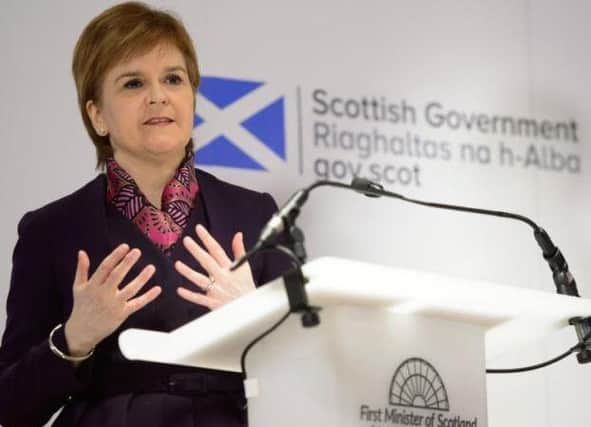Ian Swanson: Sturgeon has a point '“ we must protect devolution


But no such harmony has descended on the prolonged dispute between the Scottish and UK governments over Westminster’s alleged Brexit “power grab”. Indeed the stand-off over what happens to the powers coming back from Brussels when we leave the EU has intensified since the Labour administration in Wales, which had been making common cause with Scotland, settled for a compromise deal.
Nicola Sturgeon has warned that the UK plan for Westminster to hold onto certain powers in devolved areas will “completely demolish the principle at the heart of the devolution settlement”.
Advertisement
Hide AdAdvertisement
Hide AdShe claimed Scotland’s ban on GM crops, the new minimum unit price for alcohol and a “more humane” welfare system could all be under threat.
Although the UK Government’s amendments to the EU Withdrawal Bill include a requirement for a “consent decision” at Holyrood before UK ministers can legislate in devolved areas, the First Minister has pointed out the “surreal” definition of consent includes saying yes, saying no or not saying anything at all.
They say a “sunset clause” will ensure the powers they want Westminster to have will eventually pass to Holyrood after seven years.
But a lot can happen in seven years and Ms Sturgeon has highlighted the prospect of a right-wing government led by Boris Johnson or Jacob Rees-Mogg “trampling all over” the gains of devolution.
Advertisement
Hide AdAdvertisement
Hide AdIndeed, perhaps it does not need a change in prime minister for Scots to be concerned. Mrs May has already shown a disturbing disregard for the way devolution has worked until now.
Despite making positive noises after visiting Ms Sturgeon at Bute House in the very early days of her premiership, Mrs May has done little since then to establish a good relationship with the Scottish Government.
She flatly refused to discuss the proposal for a second independence referendum after Ms Sturgeon announced her intention – later abandoned – to go for a fresh vote. At last year’s Scottish Tory conference, Mrs May signalled a readiness to intervene in issues in Scotland if she saw fit.
“For too long the attitude in Whitehall has been to ‘devolve and forget’,” she told the delegates, adding that devolution should not mean “a looser and weaker union” and the United Kingdom could not be allowed to “drift apart”.
Advertisement
Hide AdAdvertisement
Hide AdThe SNP is always open to the accusation that it exaggerates its difference with the UK Government in order to push the case for independence.
But it is not alone in still seeing a serious threat in the latest proposals about EU powers, despite Wales’ willingness to accept them.
Labour’s Malcolm Chisholm, former MSP for Edinburgh Northern and Leith, is among those urging the other parties to back Ms Sturgeon in defending the 1988 Scotland Act.
Devolution is a success, but it needs to be protected and that does not seem a priority for the current UK Government.
